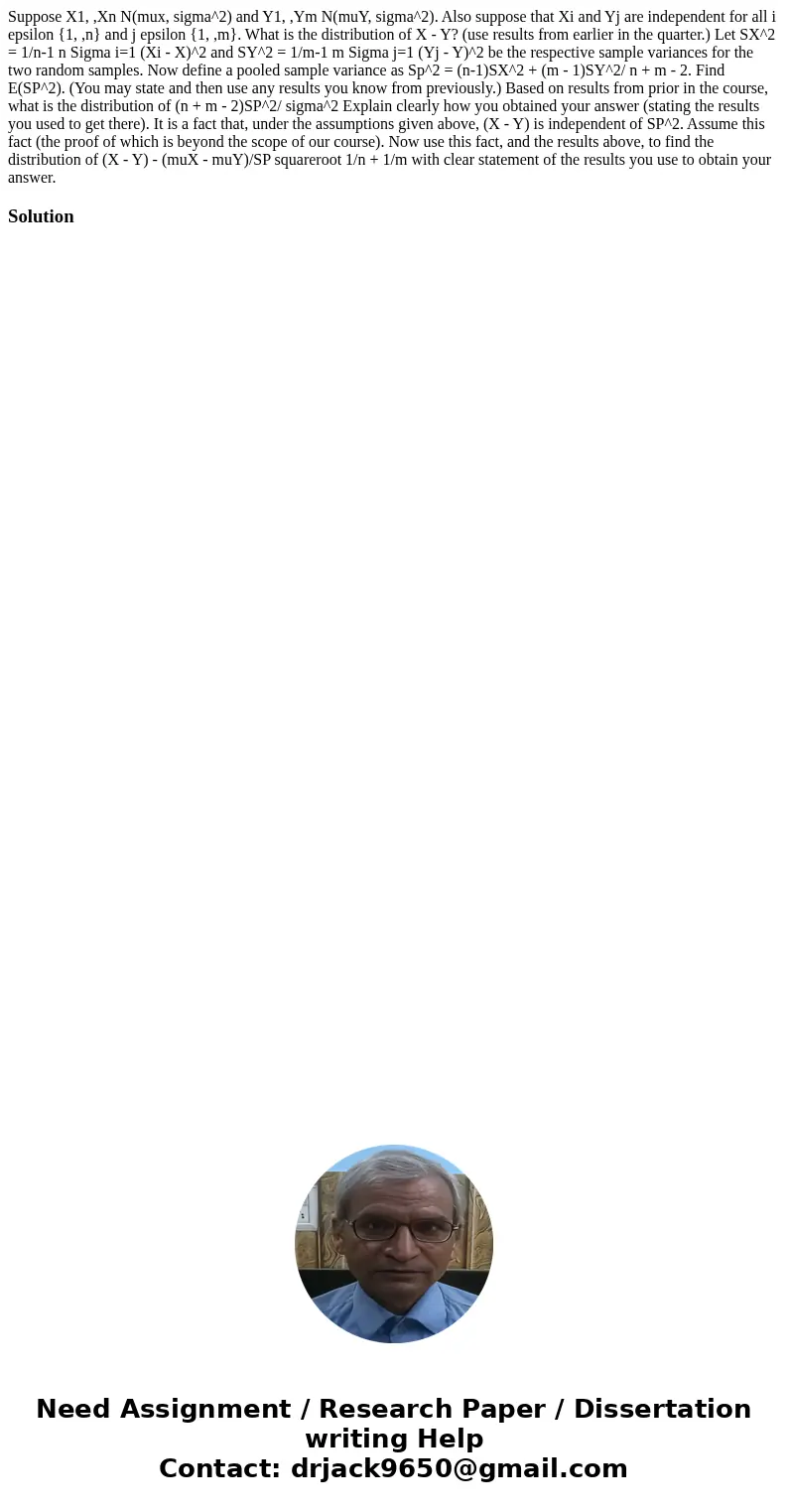Suppose X1 Xn Nmux sigma2 and Y1 Ym NmuY sigma2 Also suppose
Suppose X1, ,Xn N(mux, sigma^2) and Y1, ,Ym N(muY, sigma^2). Also suppose that Xi and Yj are independent for all i epsilon {1, ,n} and j epsilon {1, ,m}. What is the distribution of X - Y? (use results from earlier in the quarter.) Let SX^2 = 1/n-1 n Sigma i=1 (Xi - X)^2 and SY^2 = 1/m-1 m Sigma j=1 (Yj - Y)^2 be the respective sample variances for the two random samples. Now define a pooled sample variance as Sp^2 = (n-1)SX^2 + (m - 1)SY^2/ n + m - 2. Find E(SP^2). (You may state and then use any results you know from previously.) Based on results from prior in the course, what is the distribution of (n + m - 2)SP^2/ sigma^2 Explain clearly how you obtained your answer (stating the results you used to get there). It is a fact that, under the assumptions given above, (X - Y) is independent of SP^2. Assume this fact (the proof of which is beyond the scope of our course). Now use this fact, and the results above, to find the distribution of (X - Y) - (muX - muY)/SP squareroot 1/n + 1/m with clear statement of the results you use to obtain your answer.
Solution

 Homework Sourse
Homework Sourse